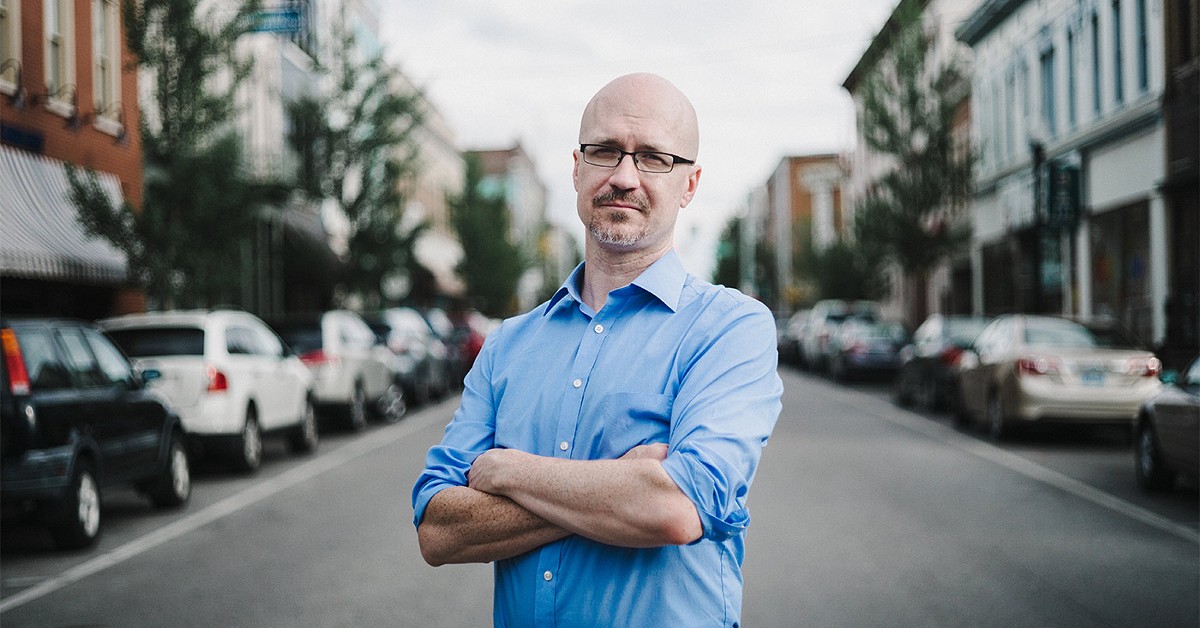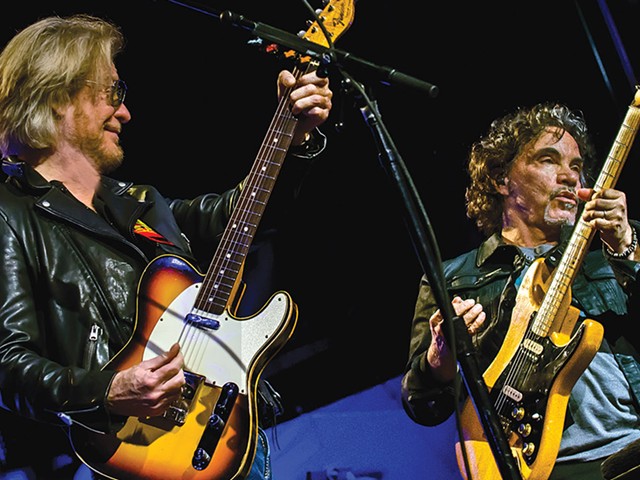As I write this, lawyers for Johnson & Johnson are furiously crossing i’s, dotting t’s and billing hours for the appeal they will undoubtedly file after an Oklahoma judge stung their client for $572 million last week. Johnson & Johnson began a strategic campaign in 1994 to convince doctors that they were undertreating chronic pain and that opioid pills were a “low risk” way of fixing it. We know better now, and they knew better back then. But American capitalism teaches us that the ends justify any means, and sales quadrupled in the first 12 years, so it took quite a while for anyone to point the finger at Johnson & Johnson, even when thousands of Oklahomans were dying of prescription overdoses.
So far, those decades of wrongdoing have come to this one sting. And certainly Johnson & Johnson needed to get stung. Depending on how all the appeals go, and assuming they don’t file bankruptcy, the corporation may someday end up paying over half a billion dollars for its misdeeds in the Sooner state. It will likely pay similar amounts in a few other states, maybe a little more, maybe a little less.
Good. But not good enough.
This brand of greed seems to be a historical constant. In the 1800s, China fought two wars over the opium being peddled within its borders by the British Empire. The trade was so profitable that the Crown didn’t want to give it up, despite the fact that it was rotting Chinese society from the inside. Some 10 to 12 million Chinese were addicts by 1840. The Qing dynasty, which then had the largest economy in the world, didn’t stand a chance against British greed. They lacked the proper weaponry. They were good but not good enough.
The walls of the American Museum of Tort Law in Winsted, Connecticut, tell similar stories from America’s not-too-distant past — stories that define corporate greed anew for every generation. The tobacco industry, for example, knew that cigarette smoking caused lung cancer as far back as the 1920s. To say tobacco execs didn’t care is inaccurate; they cared so much that they spent the next seven decades misleading the public about it. In January 1990, R.J. Reynolds’ public relations manager wrote in a letter to an elementary school student: “Despite all the research going on, the simple and unfortunate fact is that scientists do not know the cause or causes of the chronic diseases reported to be associated with smoking.”
But, of course, they did know. Just like McDonald’s knew, from hundreds of consumer complaints, that its coffee was kept too hot for human consumption. And Ford knew the Pinto would explode, burning the occupants to death when struck from behind. And 3M knew it was selling respirators that didn’t protect coal miners from black lung. And ExxonMobil executives knew in the 1970s that their product was choking the life out of the whole planet.
As a plaintiff’s attorney, I appreciate what lawsuits like the one brought by the state of Oklahoma are supposed to do. They hit the wrongdoer in the wallet. They teach them not to do it again. They keep us from resorting to street justice. Above all, they make the victim whole. These are professional platitudes we lawyers repeat to anyone who will listen and believe deep in our hearts. And, for the most part, they are true.
But what do these stories of greed and vindication really teach us? Some of the villains paid some money, years later, to estates or to trust funds or to state governments. Some of them never paid more than a few days’ revenues. Johnson & Johnson’s judgment sounds enormous, but an award like that won’t even begin to undo the damage wrought by the pharmaceutical giant; damage it was allowed to get away with for decades. The state had asked for $17.5 billion. Even the requested amount was only about one year of Johnson & Johnson’s profits. Not good enough.
Not only are many of the victims of America’s behemoth corporations dead and buried by the time they got paid, but their assailants are still very much alive. Ford is going strong. 3M has operations in over 60 countries and a revenue of $34 billion annually. I still eat the occasional Quarter Pounder. The Brown & Williamson skyscraper stands proudly in downtown Louisville. Johnson & Johnson, too, will survive. If ExxonMobil dies, it will because we all died with it.
The monsters live on, but Dr. Frankenstein never pays penance. None of the executives of these companies — the human beings who made the calculated decision to choose profits over people — will themselves ever feel the shame of ruining innumerable lives. They will die peacefully, bloated and successful, surrounded by admirers and sycophants. No matter how high the crime, there is no comeuppance, no day of reckoning, no slow march to the guillotine, no just deserts.
There is, in the end, no comparison between the losses suffered by the people of Oklahoma (or the people of Indiana or Kentucky) and the meager losses suffered by Johnson & Johnson or any other cold, monolithic, corporate entity to whom we Midwesterners have collectively decided to cede so much. The people I grew up with, the people I represent, the people who have lost sons, daughters, siblings and parents to the scourge of opioid overuse — they will never truly be made whole. The law does not provide an adequate remedy.
Won’t entities like Johnson & Johnson at least think twice before hyping a product that kills countless people? Maybe, and that’s of some comfort. But as the walls of the Tort Museum show, entrepreneurial greed is a hydra that occasionally gets a head lopped off. We never think to strike at the body. Or maybe we just lack the proper weaponry. Our system is good. It just isn’t good enough. •
Dan Canon is a civil rights lawyer and law professor. “Midwesticism”is his short-documentary series about Midwesterners who are making the world a better place. Watch it at: patreon.com/dancanon.






